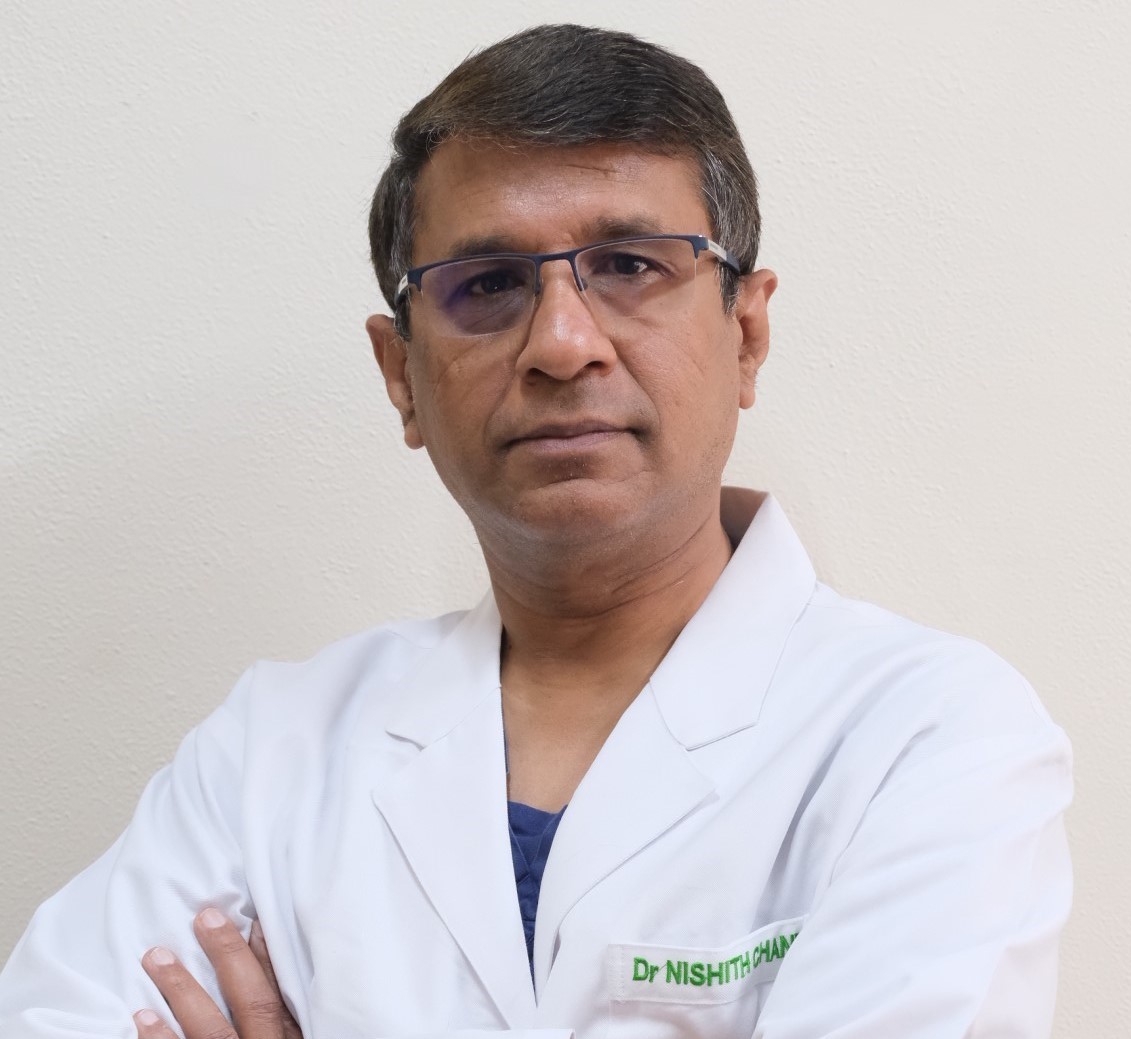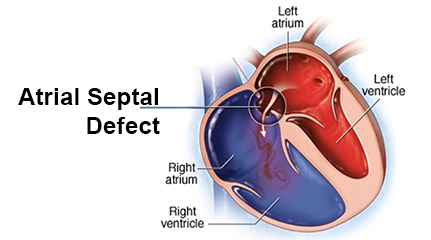Atrial Septal Defect (ASD) Repair
India
-
Our Price USD 4950
-
Hospital Price USD 5500
-
You Save : USD 550
Booking Amount: USD 495. Pay Remaining 90% at the hospital.
Book NowAdditional Credit
Among the important extras we offer as part of the Additional Credit are the following:
-
Site Tourism For The Patient & Attendant
-
Airport Pick & Drop Service
-
Ambulance service at airport
-
Priority appointments with The Doctor
-
Cancel Easily Anytime with Full Refund
-
Room Upgradation
-
Free Online Doctor Consultation Valued at USD 20
-
Free hotel Stay for 5 to 7 days Accordingly
-
Welcome Kit at Arrival
-
Interpreter
-
Medical Visa Assistance
What is Included?
- Doctor consultation charges
- Lab tests and diagnostic charges
- Room charges inside hospital during the procedure
- Surgeon Fee
- Cost of implant
- Nursing charges
- Hospital surgery suite charges
- Anesthesia charges
- Routine medicines and routine consumables (bandages, dressings etc.)
- Food and Beverages inside hospital stay for patient and one attendant.
What is not Included?
- Extra Radiology Investigations
- Healthcare Professionals Charges of other consultations.
- Other Requested Services such as Laundry etc.
- Additional Pharmaceutical Products and Medicines After Discharge from Hospital.
- Management of Conditions Unrelated to Procedures or Pre-Existing.
- The cost of any additional implants will be in addition to the package cost.
Package Description
Procedure Description:
Atrial Septal Defect (ASD) Repair
An ASD closure is a procedure for closing an atrial septal defect (ASD). ASD develops when a portion of the septum, the tissue that separates your upper two heart chambers (atria), does not mature properly. This creates a hole in your heart that does not close on its own.
The Interventional Cardiology Program at Penn Medicine uses cardiac catheterization, a minimally invasive method, to close an atrial septal defect. They inject a thin, hollow tube (catheter) into the groin and thread it up to the heart to place an ASD closure device, which seals the hole. This procedure is also known as transcatheter ASD closure.
Most persons with ASDs qualify for catheter-based closure. If you have a huge hole or additional heart problems, your cardiologist may consider an open-chest ASD closure. In these operations, a heart surgeon opens your chest and repairs the hole with the device, stitches, or a patch.
Disease Overview:
Atrial Septal Defect
An atrial septal defect (ASD) is a congenital cardiac defect that results in a hole in the atrial septum. This is the muscular wall that separates the heart's two upper chambers (atria). Small ASDs normally do not require treatment. Larger ones may necessitate percutaneous (nonsurgical) correction or surgery to reduce the likelihood of significant consequences.
Disease Signs and Symptoms:
Most children show no indications or symptoms. A heart murmur is the most prevalent (and, in many cases, the sole indication). Their healthcare provider will notice it while listening to their heart using a stethoscope.
Other symptoms in children may include
1- Being underweight.
2- Growth delays.
3. Recurrent respiratory infections.
Children with greater ASDs may experience symptoms including 1- cardiac arrhythmias, albeit this is extremely unusual.
2- Easily exhausted during exercising.
3- Difficulties breathing.
Adults with ASD may experience symptoms by the age of 40. The severity of the ASD's effects on the heart and lungs determines the symptoms that appear. They include:
1- Fatigue.
2- Shortness of breath during exertion.
3. Heart palpitations.
4- Rapid heartbeat (tachycardia).
5. Arm and leg swelling.
6- Blue skin tone (cyanosis).
Disease Causes:
It is unclear what causes atrial septal defects. Congenital cardiac abnormalities, on the other hand, are frequently the result of prenatal genetic alterations. Some ASD-related genetic abnormalities impact the genes NKX2.5/CSX and TBX5.
Some variables increase a birthing parent's chances of having a baby with congenital heart disease. These factors include:
1. Alcohol consumption.
2. Smoking and tobacco use.
3. Taking some prescription drugs.
Disease Diagnosis:
Your doctor will perform one or more tests to diagnose you with an ASD and determine how it affects your heart. This includes:
1- Electrocardiography (ECG or EKG). An ECG displays your heart's electrical activity. It can detect arrhythmias or other issues with your heart's electrical circuitry.
2- Chest X-ray. This test will determine whether your right atrium and right ventricle are enlarged. It will also indicate whether your lungs' blood vessels are compromised.
3. Transthoracic echocardiography (TTE). This test illustrates how left-to-right blood shunting (induced by ASD) affects the heart. It can also display information relating to pulmonary hypertension.
4. Transesophageal echocardiography (TEE). A transesophageal echocardiogram is an ultrasound that is performed through the esophagus. It depicts the size, shape, and location of an ASD. It can also monitor your heart valves. TEE is commonly utilized for ASD surgery and percutaneous correction.
5- intracardiac echocardiography (ICE). This is an ultrasound of your heart. A tiny camera (echo probe) is inserted into your heart via a peripheral vein. This test reveals the size, shape, and direction of blood flow across the ASD. It is commonly utilized in the percutaneous (nonsurgical) correction of ASD.
In some circumstances, a cardiac CT scan or MRI may be employed. They are more beneficial to persons with related defects or less frequent kinds of ASD.
Disease Treatment:
Atrial septal defects can be repaired surgically or percutaneously (without surgery).
Treatment for ASD is determined by several factors, including the kind and severity of the condition.
- How the ASD affects your heart.
- You have other medical issues, such as pulmonary hypertension, valve disease, or coronary artery disease.
Small ASDs normally do not require correction. Even if no symptoms are present, bigger ASDs should be corrected. This avoids significant difficulties down the future.
When you notice evidence of heart or lung damage, you must get it repaired. Your provider will suggest treatment if:
- The right side of your heart is larger than normal.
- There is substantial shunting (blood flow via the ASD).
Certain ASD symptoms may be treated with drugs prescribed by your clinician. But there are none.
Percutaneous (nonsurgical) repair of ASDs: This method of repair involves closing the opening in your atrial septum with a device known as a septal occluder. A catheter, or long, thin tube, is used to insert the device.
Surgery is required for primary ASDs, coronary sinus abnormalities, and the majority of sinus venosus ASDs. These are uncommon anomalies that must be treated by a cardiac surgeon with experience in congenital heart disease. Some persons may be able to have robotic-assisted or minimally invasive surgery.
A tissue patch is typically used to seal the ASD after surgical treatment. The tissue is commonly derived from your own pericardium (the membrane that surrounds your heart). Some secundum ASDs can be surgically closed with stitches and no patch.
Information related to Treatment
Package Details
Days in Hospital
5 Days
Days in Hotel
*
15 Days
Room Type
Private

Treating Doctor
Dr. Nishith Chandra
Interventional Cardiologist- Pacemaker Implantation, Coronary Angiogram, Cardiac Catheterisation, Carotid Angioplasty And Stenting, Implantable Cardioverter-Defibrillators (ICDS), Peripheral Angioplasty
Fortis Escorts Heart Institute New Delhi, India
29 Years of Experience


